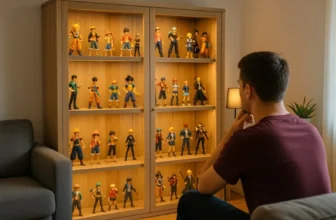Some things just get lost in translation—especially when it comes to idioms. The French language is full of colorful, quirky, and sometimes poetic expressions that simply don’t make sense when translated word-for-word into English.
Whether you’re a language lover, a traveler, or just curious about how people express themselves differently, you’ll love this list of French sayings that are funny, strange, or just plain untranslatable.
French Expressions – Part 1
1. “Les carottes sont cuites” – The carrots are cooked
This might sound like someone is just announcing dinner, but in French, it means “It’s over” or “There’s no turning back.” It’s used in dramatic situations, like when a plan has failed or a situation is beyond saving.
Why it doesn’t translate well: In English, we might say “The jig is up”—but that doesn’t involve vegetables.
2. “Tomber dans les pommes” – To fall in the apples
No, this has nothing to do with clumsy grocery shopping. This French expression means to faint. It’s often used in informal conversation when someone loses consciousness from shock or heat.
Fun fact: The origin is unclear, but it might come from an older expression involving “être dans les pommes cuites” (to be exhausted).
3. “Faire la grasse matinée” – To do the fat morning
This charming phrase actually means to sleep in. The idea is that a “fat morning” is one filled with rest and laziness.
Why we love it:
There’s something indulgent about saying you had a “grasse matinée.” It sounds way better than just “I overslept.”
4. “C’est la fin des haricots” – It’s the end of the beans
This dramatic idiom means “That’s the last straw” or “All hope is lost.” In older times, beans were considered a staple food. If they were gone, well… it was serious.
Pro tip:
When things go really bad, just sigh and say “C’est la fin des haricots.” People will know you mean business.
5. “Poser un lapin” – To put down a rabbit
Sounds adorable, right? It’s not. This phrase means to stand someone up, like skipping a date or appointment without warning.
Literal English doesn’t do it justice. Imagine telling someone “He put a rabbit on me.” Not the same impact.
Language Isn’t Always Logical
These expressions remind us that language is full of quirks—and cultural meaning can’t always be captured by a dictionary. Here’s why:
Idioms reflect a culture’s personality
French expressions often carry poetic or humorous imagery. That’s part of what makes them so charming—and hard to translate.
Machine translation isn’t enough
Tools like Google Translate might turn “avoir le cafard” into “have the cockroach.” But the real meaning is “to feel blue” or “to be down.” That’s why context—and human judgment—matter.
If your business relies on clear communication, working with experts in the field is essential. For culturally accurate and meaningful translation, consider partnering with professional translation services in Manitoba.
French Expressions – Part 2
6. “Avoir un coup de foudre” – To have a lightning strike
This beautiful phrase describes love at first sight. It literally means a bolt of lightning—because love can hit that fast.
7. “Appeler un chat un chat” – To call a cat a cat
“To call a spade a spade” is the English version, but this one just feels cuter. It means to speak plainly and say things as they are.
8. “Se prendre un râteau” – To get hit with a rake
Ouch! This one means to get rejected romantically. If you “got a rake to the face,” you asked someone out and they said no.
9. “Chercher midi à quatorze heures” – To look for noon at 2 p.m.
This phrase mocks people who overcomplicate simple things. It’s like saying, “You’re making things harder than they are.”
10. “Avoir le cafard” – To have the cockroach
As mentioned earlier, this unsettling image actually refers to feeling depressed or gloomy. It’s one of the most common French expressions with a wildly unexpected translation.
Final Thoughts: Embrace the Weird
French is a rich, expressive language—and its idioms prove that communication isn’t always about logic. Sometimes, it’s about imagination.
Whether you’re learning French, expanding your business to francophone markets, or just curious about cultural quirks, remember: literal translations only go so far. To truly connect, you need to speak the language behind the words.
And if you’re looking for help navigating the subtleties of French, from idioms to official documents, you can always rely on professional translation services.








